Cheap flights tips: Doc Holiday answers big questions about flying
From lite fares and frequent flyer points to nabbing a bargain price on your next adventure, Doc Holiday has all the answers.
Lifestyle
Don't miss out on the headlines from Lifestyle. Followed categories will be added to My News.
Every so often I terrify travel advisers around the country with my desperation for crystal ball-level answers to questions bouncing around my head: What’s new for airlines in 2025? Why are airfares still so expensive? What is the meaning of life (and is it related in any way to travel, as I’ve long suspected)?
Gillian Woodley of Woodley & James Travel Associates has been an adviser for 28 years, so while she is yet to come back to me regarding the meaning of life, she was more than ready to enlighten me on everything else. (Woodley also reveals premium economy will be the biggest travel boom product of 2025.)
“Acceptance that we can never go back to what we had before is key,” she says. “The cost of doing business has increased in every industry; we pay more for coffee and we pay more for our groceries, so why would we expect to keep paying 2015 pricing for airfares?”
You’ve no doubt got a few questions of your own about getting up in the air this year, so here we answer the ones most commonly put to the Escape team.
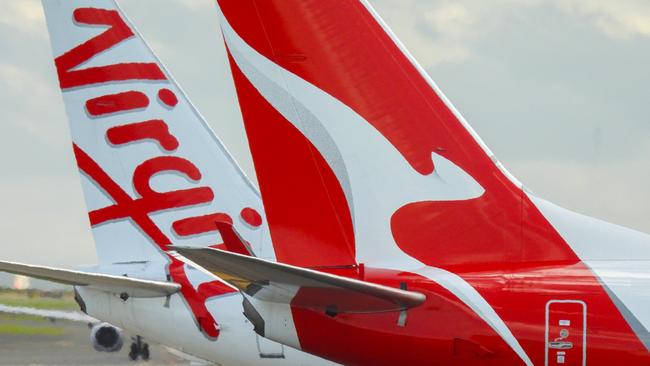
What’s the best way to score cheaper airfares?
It’s not your imagination – airfares are definitely still at eye-watering levels, particularly in the domestic sector, says aviation analyst Keith Tonkin (aviationprojects.com.au).
“With the loss of Bonza and the financial difficulty Rex Airlines is facing, we’re essentially back to the old days where two airline groups (Qantas and Virgin Australia) have a comfortable duopoly and prices to reflect the lack of competition,” he says. He also says that a global shortage of aircraft, plus flying longer distances to avoid conflict zones, add to the cost.
Happily, there are ways to game the system, and booking flights as far in advance as possible remains the gold star – not only from a pricing point of view, but also when it comes to having a wider range of options in terms of routing and seating. Aim to travel during off-peak or shoulder periods, sign up to sales alerts from airlines, and consider either flying to nearby (and quite possibly cheaper) airports and jumping on a train, or including a stopover, which can also reduce the cost. Finally, be sure to look at one-way tickets, too.
“Round-trip flights aren’t always the cheapest,” says Skyscanner Australia travel expert Jarrod Kris. “Sometimes you save more by booking two one-way tickets, allowing you to mix and match airlines. Search for both round-trip and one-way flights to see which price out the best.”
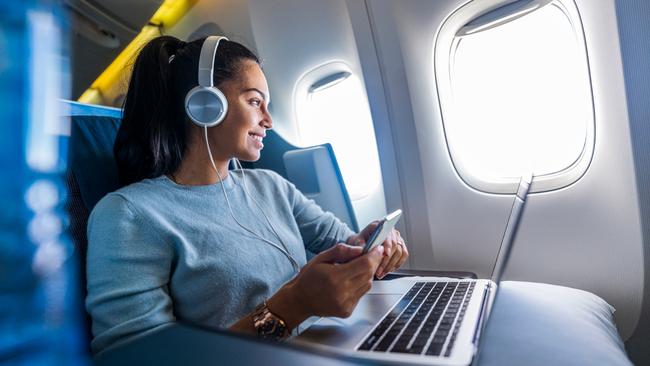
What does a low-cost airline really get me?
We’ll take your Jetstar and raise you a Scoot, FlyDubai, EasyJet or AirAsia, each one a low-cost carrier offering cheaper fares in exchange for fewer amenities that are normally part of a fare.
While inclusions vary between carriers, it often means you’ll have to BYO entertainment and pay extra for baggage, in-flight meals, seat selection and options for ticket changes or cancellations.
Safety records for major low-cost carriers (which tend to use newer aircraft) are stellar. However, it’s worth noting that they tend to service high-frequency, point-to-point, short-to medium distance routes, use secondary airports, and have a more compact cabin layout (hence narrower, less comfortable seating).
Woodley says: “They’re coming in at entry level – they need to make money somewhere so it would be wise to overestimate how much your flight is going to cost and pay those additional charges upfront.”
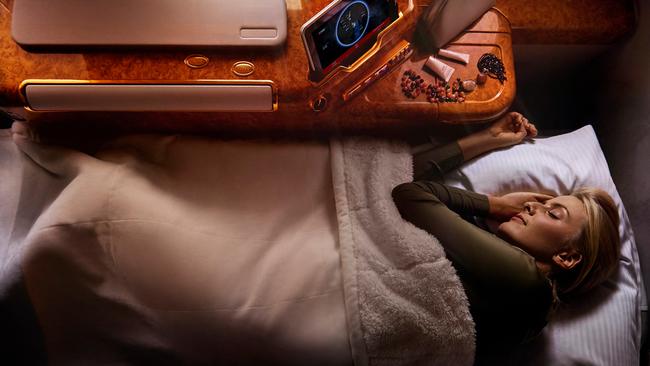
What is a lite fare?
It’s probably best to explain that although there are four cabin classes (first class, business class, premium economy and economy), there are about a dozen fare classes.
To break it down, first class can mean flying in your own multi-room suite, dégustation menus with paired wines created by a master chef, massages and manicures in the first-class lounge day spa and personalised service.
Business class passengers will enjoy separate check-in and fast-track service, more generous baggage allowance, flat beds and restaurant-quality meals with flexible dining times.
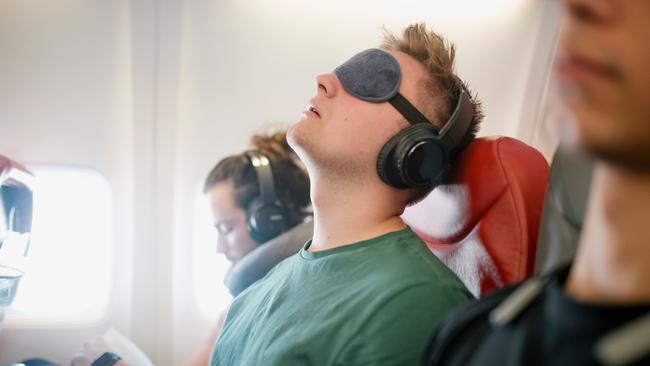
Premium economy offers what Woodley says is a “nice middle ground for those keen to treat themselves without spending their kids’ inheritance”. Expect priority boarding, wider seats with more legroom, higher quality meals and drinks and better amenities.
Economy? We all know it’s a means to an end.
Fare classes, denoted by a letter assigned to your ticket, determines the price, flexibility and conditions of your ticket.
Lite fares are among the most basic fares you can buy, offering complimentary water, tea and coffee, with just about everything else – baggage, seat selection and food – available to buy.
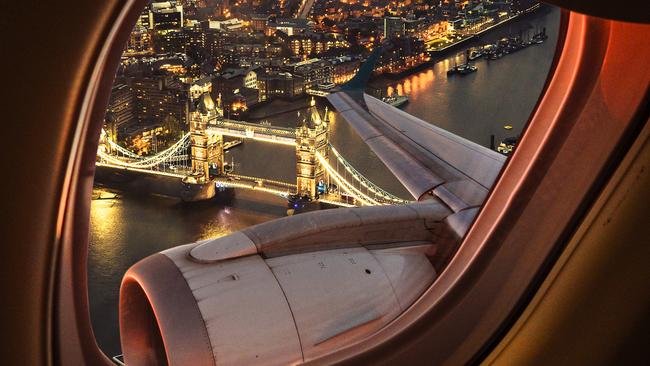
How do round-the-world tickets work?
Consider it the ultimate road trip in the skies, a ticket which allows you to circumnavigate the globe on a single itinerary, enabling you to stop at up to 16 destinations along the way.
It’s not completely lawless; travellers must travel in one direction (flying east or west), leave from and return to the same country, for example, and some fares may also require you to travel over a certain number of continents, or with a minimum number of destinations.
Properly researched, round-the-world tickets can give travellers more bang for their buck, says Woodley. “Just as you wouldn’t undertake a complicated tax return yourself, but rather take it to an accountant, this is one where a travel adviser is your best friend, as they’ve got all the airline feeds to search for the right airline partners to further reduce costs.”
As an alternative, you could also do a multi-city search on Skyscanner where you can book stopovers on your own, adds Kris.
“By clicking on ‘multi-city’ instead of ‘round-trip’ or ‘one way’, you can book and travel to more than one destination with one simple search, making it a great way to hunt down the best deals,” he says.
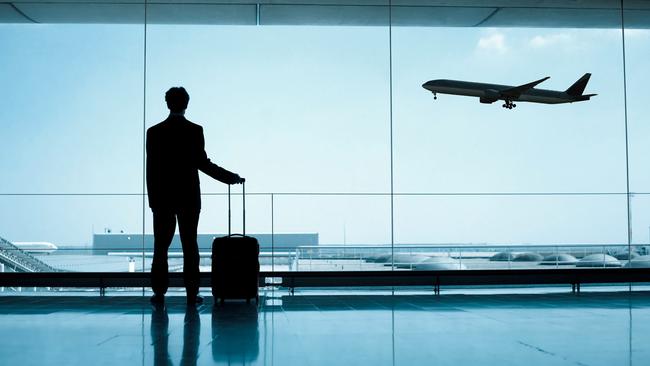
Do rewards points mean anything any more?
If you’re looking at the dismal level of points accrued, Tonkin wants you to remember that airlines don’t make changes to their rewards programs to lose money. “They’re not what they used to be, certainly; I used my points before Christmas to buy a new coffee machine,” he says.
The truth is while points programs have long been thought of as a way of getting free flights or a cabin class upgrade, it’s becoming increasingly difficult to secure seats offered by airlines that can be booked using points. This is due to the rising cost of flying and program devaluation where airlines adjust their frequent flyer programs, as well as the diversification of redemption options.
That said, rewards programs can still yield solid outcomes provided you’re willing to devote a little time and energy into their accrual, Tonkin says.
“Doing plenty of research and booking flights well in advance are two of the best tools you could have under your belt,” he says.
Keen to get started? There are three major airline alliances in the world (Oneworld, Star Alliance and SkyTeam), and you’ll want to sign up with those which allow you to earn points every time you fly on an airline which is a member of that particular alliance. Just remember that whatever you choose, it must align with your travel goals. Happy travels!
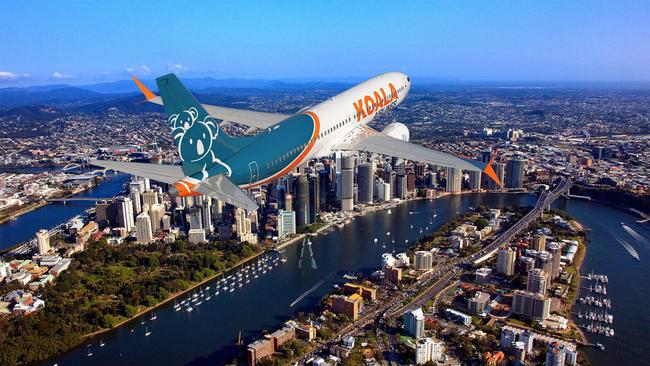
What’s with all these new airlines and routes?
When Melbourne-based Koala Airlines announced last year it was planning to launch, hearts fluttered. Whether planes ever make it into the air is anyone’s guess (they recently survived a winding-up application in the Victorian Supreme Court), but it’s an excitement further heightened by the recent launch of other new airlines such as Japan’s Toki Air and the anticipated 2025 arrival of Riyadh Air, Global Airlines and Air Kerala. Add to that the rapid expansion of Turkish Airlines, which began flying directly to Sydney in November, and the partnership between Virgin Australia and Qatar Airways set to deliver opportunities for Australians to travel to more than 100 destinations across Europe, the Middle East and Africa, and things are looking promising indeed.
“Any new players entering the field means the tried and true now have to justify their price points, and that combined with the new routes means the world is your oyster,” says Woodley.
Will I have access to wi-fi on board?
Probably, but whether or not you have to pay for it depends on the airline, aircraft type, route or class you’re flying, or whether you’re a rewards member. Most airlines allow you to check if wi-fi (free or paid) will be available on your specific flight before booking your flight. Discovered you need to pay? Pricing of wi-fi packages varies between airlines and the type of pass you choose, but some airlines allow you to pre-purchase a package for a discount.
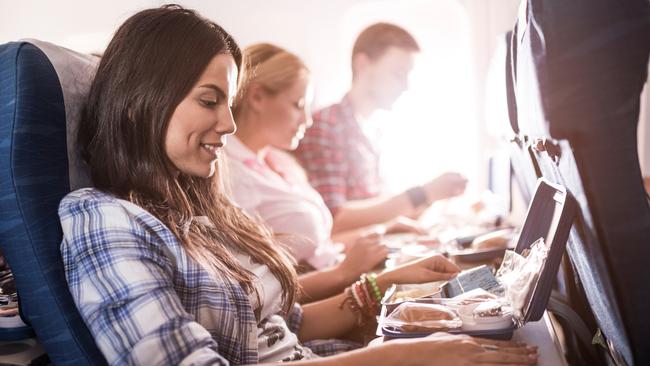
Can airlines cater to my dietary requirements?
Michelin stars are never going to be awarded for the food being served across the skies, but airlines will cater for a gobsmackingly large range of special dietary requirements, whether they be for religious or medical reasons, particular diets, or if you have a fussy toddler who views meal avoidance as the ultimate Olympic event. A request for a special meal will need to be made at least 24 hours before departure (and sometimes longer for some airlines or particular routes).
Do airports offer luggage storage solutions?
This is probably the most commonly asked flying-related question I get. The answer is yes, almost all airports do, whether it’s a stand-alone counter or coin-operated lockers. Storage options near, rather than in, the airport, such as those offered by Stasher and Bounce can have better pricing and flexibility, though.
More Coverage
Originally published as Cheap flights tips: Doc Holiday answers big questions about flying





